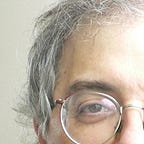--
Buried in the Wordplay: Life Sciences Graduates From Google X
Buried in the Alphabet announcement was a significant piece of news: one of the new portfolio companies in Larry Page’s Scrabble game is Life Sciences. Until yesterday, the medical research operation had been one of the major initiatives inside of Google X. So Page’s declaration is the de-facto “graduation” of this enterprise from the moonshot-loving research division. You can even say that this graduation is magna cum laude, because now it will be a company, albeit a fully owned subsidiary of Alphabet.
I have gotten confirmation that the current leader of Life Sciences, Andrew Conrad, will continue to run the operation, presumably as one of Page’s quasi-independent CEOs. In establishing the company as an entity in itself, Conrad has some advantages in that some of his projects have already taken on powerful partners. The flagship venture at Life Sciences is a bold attempt at early disease detection that involves releasing smart nanoparticles in the bloodstream, which can identify markers of nascent heath issues, and signal the user through a wearable device. Conrad describes the system as similar to the Star Trek “Tricorder” which instantly diagnoses one’s ailments. He’s working with Stanford and MIT. (You can learn about it in this interview I did with Conrad.) Other projects include a smart contact lens (in partnership with Novartis) and the organization of a “Baseline Study” to establish the genetic parameters of what a healthy person is. (Partners include Duke and Stanford.) [UPDATE: the day after the Alphabet announcement, DexCom, a company whose mission is “to help move health care from reactive to proactive,” announced a partnership with Life Sciences to develop advanced glucose monitoring technology.]
Life Sciences might be the perfect case to gauge whether Page’s portfolio scheme has its intended purpose of less bureaucracy and faster innovation. As the leader of Life Sciences, how much time will Conrad be spending on tasks related to running a company as opposed to research that takes advantage of his unique skills? And while a good deal of the activity at Life Sciences is biological lab work that has had little to do with the rest of Google, some of its projects rely heavily on artificial intelligence and data mining. Up until now, engineers in those fields could move freely between Google X and other areas of Google. It’s not clear how much of that fungibility will exist under the new structure. We also don’t have an idea of how Google plans to charge these new companies for shared resources like data centers. (I’m assuming that “Google Classic,” the part of the company with search, ads, Android, and YouTube, retains possession of the infrastructure. But Alphabet hasn’t gone into that degree of detail in its explanation.)
In any case, establishing Life Sciences as a separate company under the Alphabet umbrella may wind up being one of the most important legacies of this shift — in terms of Alphabet finances and our future health.
